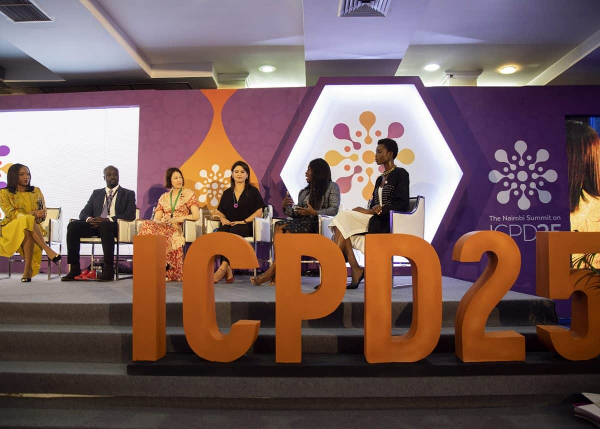NEW DELHI: India plans to create a trained midwifery cadre in order to reduce Maternal Mortality Rate (MMR) further.
At present, latest data shows MMR in India stands at 122 maternal deaths per 1,00,000 live births. Officials said the government aims to reduce it to less than 70 maternal deaths per 1,00,000 live birth by 2030.
This commitment, which is part of the targets set under Sustainable Development Goals (SDG), was reiterated recently by the top government officials who represented the country in the recently concluded International Conference on Population and Development (ICPD) in Nairobi, Kenya.
The government also talked about schemes such as Suman (Surakshit Matritav Aashwasan – Safe Motherhood Assurance), a new scheme launched recently for assured delivery and new born health care services.
“We will also integrate Sexual and Reproductive Health services and Comprehensive Abortion Care (CAC) into primary health care services within the overall context of universal health coverage by 2030,” said an official.
The government also committed to increasing health expenditure to 2.5 percent of the GDP by 2025 from the existing 1.15 percent. The Indian government has already pledged $3 billion by 2020 for improving reproductive health services, an official said.
The government talked about its commitment to make Universal Health Coverage a reality for all through increased coverage and funding through its Flagship Programme, ‘Ayushman Bharat’ (Healthy India), launched in 2018.
Dr S K Sikdar, commissioner in charge of immunization in the health ministry, said the National Health Protection Scheme (called Pradhan Mantri Jan Arogya Yojana, or PM-JAY) will cover 100 million poor and vulnerable families or 500 million Indians. “Health and Wellness Centre is the second flagship programme under this scheme which will operationalize 1.5 lakh (0.15 million) centers that will provide comprehensive health care, including reproductive, maternal, child, neonatal and adolescent health services,” he added.
“The Nairobi Summit represents a renewed, re-energized vision and community working together to act and deliver. Together, we will make the next ten years a decade of action and results for women and girls, keeping their rights and choices at the centre of everything we do,” said UNFPA Executive Director Dr Natalia Kanem.
The Summit opened with the release of new research showing the price tag to achieve “three transformative results” – zero maternal deaths, zero unmet need for family planning, and zero gender-based violence and harmful practices – within the next decade. The total cost to the world would be $264 billion, according to the analysis by UNFPA and the Johns Hopkins University, in collaboration with Victoria University, the University of Washington and Avenir Health.
Source: TOI
Image Courtesy: The South African
You may also like
-
India Against Mpox
-
Combination of ‘Siddha’ Drugs Reduces Anemia in Adolescent Girls: Study
-
Suspected Mpox Case Under Investigation; Patient Put Under Isolation, No Cause for Alarm
-
Prime Minister Applauds India’s Best Ever Performance at the Paralympic Games
-
National Exit Test (NExT) for Ayush to be Effective from 2021-2022 Batch: Union Minister of Ayush Shri Prataprao Jadhav
